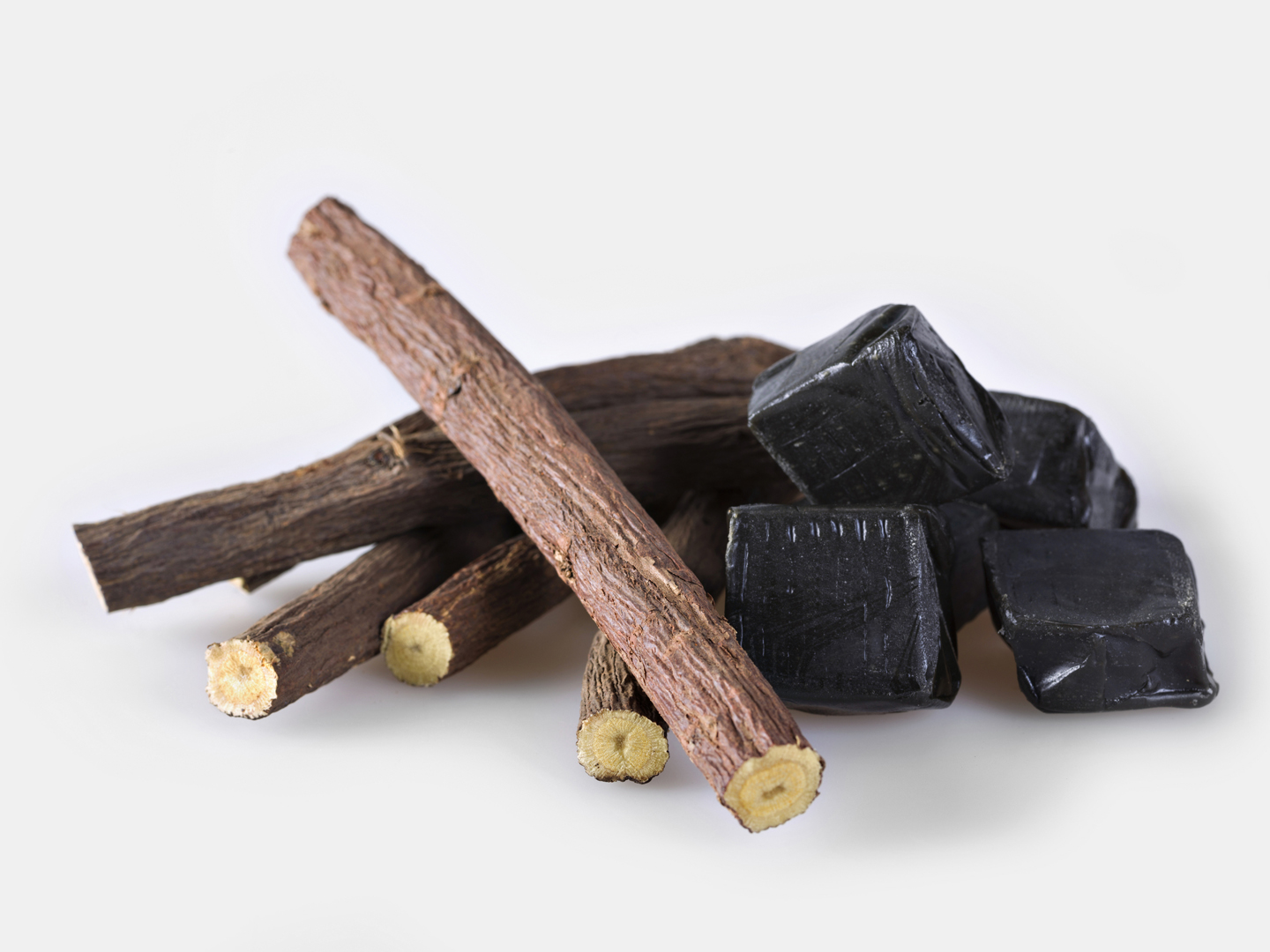Licorice Lowdown?
I’ve heard that eating licorice can lead to heart problems. I love the stuff and can’t resist it at Halloween when there’s always a lot around. Can you tell me if licorice really poses a health risk?
Andrew Weil, M.D. | October 30, 2012

It appears to be true that eating too much licorice can affect your heart. This is due to glycyrrhizin, the sweet compound found in licorice root. The U.S. Food and Drug Administration (FDA) has warned that if you’re over 40 and eat more than two ounces of licorice daily (for two weeks or more), you can run into health problems. The amount of glycyrrhizin you would be consuming can cause potassium levels to drop, leading to abnormal heart rhythms, high blood pressure, swelling, lethargy, and over time to congestive heart failure. If you stop eating licorice, potassium levels go back to normal with no apparent aftereffects on health. In 2011 the FDA issued a pre-Halloween warning about the potential dangers of eating too much licorice and noted that several medical journals had linked black licorice to health problems in people over 40, some of whom already had a history of heart disease or high blood pressure. (Red licorice usually contains no licorice, but you should always check labels).
Note, however, that while licorice is sometimes used as a flavoring in food, including candy, the FDA notes that most “licorice” or “licorice flavor” products available in the U.S. do not contain any licorice at all. Instead, manufacturers use anise oil, which has a very similar smell and taste. Anise does not contain glycyrrhizin.
I frequently recommend a dietary supplement called DGL (deglycyrrhizinated licorice), which is licorice with the glycyrrhizin removed, for digestive problems including chronic indigestion, heartburn, stomach ulcers and canker sores. It is available as chewable tablets, wafers, capsules, tea and powder. DGL has no side effects and does not interact adversely with prescribed medications you may be taking. You can take DGL as long as necessary.
I recommend whole licorice extract for menstrual and menopausal disorders and inflammatory disorders, as well as herpes, eczema and psoriasis. Whole licorice is available as roots, extracts and topical preparations, but these products should be used prudently. Overdoses of glycyrrhizin can also trigger sodium and water retention and increase blood pressure. Avoid whole licorice or licorice root if you have high blood pressure, kidney or liver disease, diabetes or heart disease, if you’re using diuretics, and during pregnancy. In addition, be aware that whole licorice taken orally may increase the effects of certain drugs including corticosteroids, digitalis preparations (used to treat congestive heart failure and heart rhythm problems), and estrogens/progesterone; it can also decrease the effect of some blood pressure medications. Do not take licorice root for longer than six weeks. No such interactions occur with DGL.
If you have a fondness for black licorice, don’t overdo consumption at Halloween or any other time of year. If you develop an irregular heartbeat or muscle weakness after eating licorice, stop eating it and contact your healthcare provider.
Andrew Weil, M.D.










